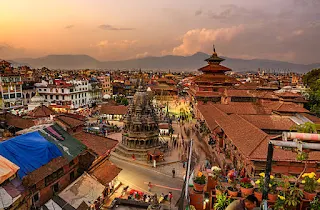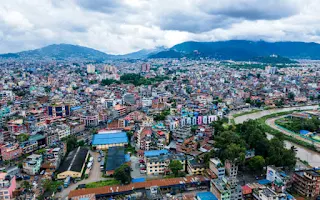Kathmandu Durbar Square: A Living Museum of Nepalese History
 |
| Kathmandu Durbar Square |
In the heart of Nepal’s bustling capital, Kathmandu Durbar Square stands as a timeless witness to the country’s rich royal past and cultural evolution. Known for its stunning temples, age-old palaces, and sacred statues, this historical site is a highlight of any Kathmandu itinerary.
As a designated UNESCO World Heritage Site, the square is more than just a tourist attraction—it's a vibrant cultural hub where tradition, spirituality, and history come alive.
What Makes Kathmandu Durbar Square Special?
1. A Royal Legacy Preserved
Once the royal residence of Nepalese kings, the area—also known as Hanuman Dhoka Durbar Square—is named after the stone image of Lord Hanuman that guards the main palace gate. The architecture reflects the Newar craftsmanship of the Malla period, showcasing wooden carvings, multi-tiered roofs, and open courtyards.
2. Architectural and Cultural Riches
The square features a unique blend of Hindu and Buddhist monuments, each telling its own story. Walking through the complex, visitors encounter traditional temples like the Taleju Temple, open pavilions, and even the Kumari Ghar, where the Living Goddess of Kathmandu resides.
3. Cultural Ceremonies and Festivals
Kathmandu Durbar Square remains a key location for religious events and traditional festivals. The Indra Jatra festival, one of the city's biggest celebrations, fills the square with music, masked dances, and rituals that date back centuries.
Key Sites Within Kathmandu Durbar Square
-
Hanuman Dhoka Palace Complex: The ancient royal palace with an on-site museum offering insights into Nepal's regal history.
-
Kumari Ghar: Home of the Living Goddess Kumari, who occasionally appears at her window to bless visitors.
-
Taleju Temple: A sacred temple dedicated to the goddess Taleju, only open to the public during Dashain festival.
-
Kasthamandap Temple: Believed to be built from a single tree, and the source of Kathmandu’s name.
-
Jagannath Temple: Famous for its detailed and sometimes controversial carvings.
 |
| Kal Bhairav Statue |
When to Visit
-
Best Season: Spring (March to May) and Autumn (September to November)
-
Ideal Time: Morning or late afternoon for better lighting and fewer crowds
-
Festival Time: Indra Jatra (September) is a perfect time to witness traditional rituals and cultural performances.
 |
| Kumari |
Entry Information
-
Location: Basantapur, central Kathmandu
-
Entry Fees:
-
Foreign Nationals: NPR 1000
-
SAARC Nationals: NPR 150
-
-
Opening Hours: Typically 7:00 AM – 7:00 PM
-
Accessibility: Easily walkable from popular areas like Thamel
.jpg) |
| Kathmandu Durbar Square |
Responsible Tourism Tips
-
Dress modestly, especially near temples.
-
Avoid climbing on statues or monuments.
-
Support local artisans and guides.
-
Be mindful of restoration areas—some temples are under ongoing post-earthquake renovation.
Final Thoughts
Kathmandu Durbar Square is more than just a cluster of temples and palaces—it's a living reflection of Nepal’s enduring heritage. Every corner has a story, every statue a purpose, and every courtyard echoes the footsteps of history. Whether you're a curious traveler, architecture enthusiast, or spiritual seeker, this destination will leave a lasting impression.








